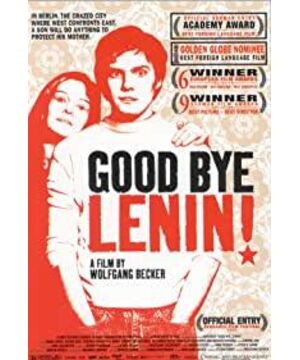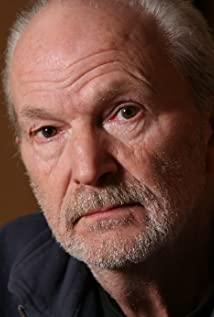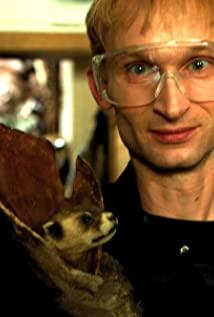Continuation, because the real country has come to an end.
In November 1989, with the 28-year-old Berlin Wall tumbling down, the GDR had turned its last page. This republic that has existed for 41 years, this highly politicized country deeply marked by the Cold War between the United States and the Soviet Union, this country that was built from ruins and turned into ruins, has accompanied the growth of a generation and turned into a collective of generations. memory.
Filmmaker Stefan Adit selected this one from a large number of scripts showing the events of the Berlin Wall. In his opinion, the reason why the German film industry was able to make such a work ten years after the fall of the Berlin Wall, It is because the whole of Germany needs time and distance to think and understand the impact of this historical event on society as a whole and the impact on individual emotions.
This story is not simply to accuse, to complain, nor to emphasize the blood and tears of the past. While reflecting on politics, it also reflects on the mental state, thoughts and emotions of a generation. Through the description of the life of a family in East Germany, the description of the family members' thoughts and characters, and a beautiful lie to illustrate the warm family affection, and wrapped in the warmth is a nation's strong and deep sadness towards the country and history. Reflect and question.
Mind at Home - A Beautiful Lie
The story has similarities with the 1997 Italian film Life is Beautiful. In "Life is Beautiful", the father concocted a lie to his son, compared the fascist concentration camp to a game, and told a story with laughter and tears in a dark humorous way. The same is true for this story. Although the era described is not as tragic as the former, it is still confronted with a cold and sad history: family breakdown, blood and tears of the Berlin Wall, the GDR Disappearance, the collapse of the communist belief.
The story also subtly combines satire and sadness with dark humor. It concentrates the complex and subtle feelings of the German nation on the disappearing GDR in a small room of only 75 square meters: some people are full of affection for it and deeply cherish it, some people are disgusted with it, just want to escape, some people Unprecedented loneliness over the shattering of beliefs, some overjoyed at embracing freedom...
In any case, the GDR has disappeared, and it has disappeared very quickly. Tens of thousands of East Germans flocked to West Germany. Those goods that once disappeared in just a few months, the East German mark that had been accumulated for decades became waste paper in an instant, and the former department stores disappeared. , clothing, decoration, means of transportation and even the rapid westernization of ideas, the GDR has disappeared in terms of national form, people's ideology and values.
As a former East German, although few people want to go back in time, the complex and subtle emotions of nostalgia and emotion are generally available for this former country. As a Chinese, I feel complicated and sentimental about the demise of such a country that shares the same ideology and was once in the same camp and the series of drastic changes that followed in Eastern Europe. The mother's mentality in the story be able to understand and resonate. At the climax of the story, my mother walked out of bed with difficulty and slowly walked out of the house. When she saw the shocking scene of right and wrong and the passage of time, the shock and astonishment in her heart were beyond words. The most shocking thing was, The statue of Lenin, who was pulled up and transported away, was in front of the mother's eyes, as if beckoning her, but also as if to indicate an era when an ideal was drifting away. When all ideals and beliefs have become anachronistic and comical in a series of staggering upheavals, people of faith can only experience biting loneliness in the boundless darkness. Where is the ideal? When the mother's ashes turned into fireworks and disappeared in the sky, does the ideal exist in the vast sky?
The Overturned Berlin Wall - The Overwhelming and Unbreakable
On November 9, 2009, dignitaries from the United States, Britain, France, Germany, Russia and other countries attended the commemorative ceremony for the 20th anniversary of the fall of the Berlin Wall. The ceremony made the domino symbolize the Berlin Wall and was pushed to the first domino by former Polish President Lech Walesa.
It is impossible to ignore the highly symbolic nature of the act itself. Beginning in Poland, the dramatic changes that took place in the last decade of the twentieth century were astounding and dizzying, not only representing a huge failure of the socialist system, but also the disintegration of an era. The commemoration after 20 years is not heavy, but gently turns over a piece of history in a comedy and banter form. Of course, 20 years ago, what exactly did this wall mean?
There is a wall in the mother's heart in the movie, and that wall is deeply ingrained, it is a clear and simple division between enemy and self, and this belief is so firm that if faced with drastic changes, it may cause her mind to collapse. This is worth reflecting on, the fact that the territory of a city is divided into two living parts, and the geographical decision that the east is a comrade and the west is a class enemy is itself absurd.
After World War II, Germany was divided into two parts, governed by the Soviet Union and the United States, Britain and France. There is no Germany in the world, and it is divided into East Germany and West Germany. There is no Berlin in the world, only two cities, East and West. If Germany still exists in the world and Berlin still exists, then Germany and Berlin have become a wall between East and West Berlin and become the only consensus between the two. This wall has also become a physical symbol of the confrontation between the two camps and the two trends of thought. On this wall there is the clearest confrontation and anxiety. The twentieth century is a century full of confrontations, contradictions and conflicts around the world. There were two wars of unprecedented scale, and there were world-wide camp confrontations. The twentieth century was marked by conflicts all over the world, civil riots, genocide, civil wars, world wars, a tragic era in human history, with hundreds of millions of deaths. When human beings began to tire of war, the half-century Cold War began to unfold again. The Cold War put enormous pressure on the world, and the power of thought became incomparably powerful, so powerful that it could divide a city in half and split a The unified national thinking was completely divided into two, and a wall of cold confinement was savagely running across the center of the city.
Whether in the film or in reality, this wall is a symbol of imprisonment and oppression, cold and brutal, with a black absurdity. The overthrow of the wall means that communication is possible, and understanding and openness can follow. The torn down wall means that a new era is coming, and history has quietly turned its direction. It is no longer confrontation, but gradually turned to an era of tolerance, openness, communication and integration, an era of dialogue. Even if this era is no longer clear-cut, dialogue means compromise, openness means loss, and the clear understanding of the enemy and self has turned into an ambiguous and changeable relationship, but the world has already produced identity, and it can no longer return to a closed , repressed, confrontational time and space gone.
Yet even as mainstream values become more and more converging between countries, the scars of the past are not easy to remove. Even if the walls that symbolize oppression and imprisonment have been torn down, the walls built in people's hearts are difficult to tear down. Ideals and beliefs become strong walls, and when beliefs are shattered, it brings deep scars in the heart. East and West Germany has long been unified, but the concept of East Germany and West Germany has been engraved in people's minds. The titles of "East German" and "West German" are still popular today. East Germans believe that West Germans are arrogant and Western Germans are arrogant. Germans think that East Germans like to be lazy and hate to work. Such a division of cultural psychology is sad. How to overthrow the wall between people, how to heal the wounds of the nation, and how to communicate freely and without obstacles, it will take a longer time to heal.
View more about Good Bye Lenin! reviews











